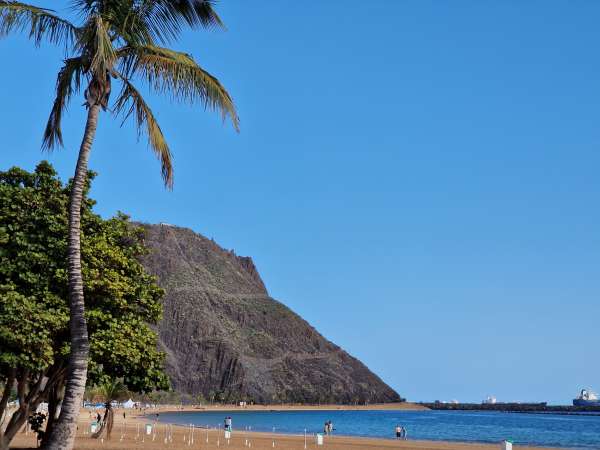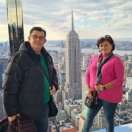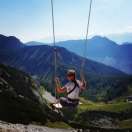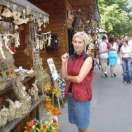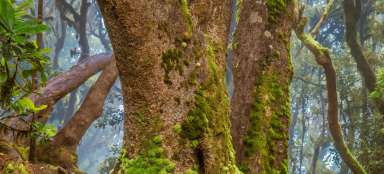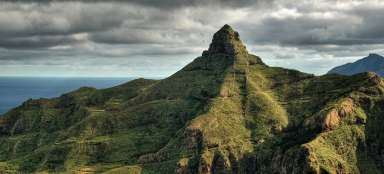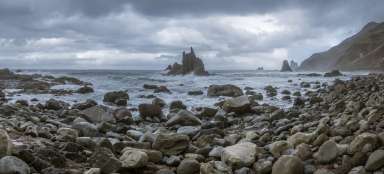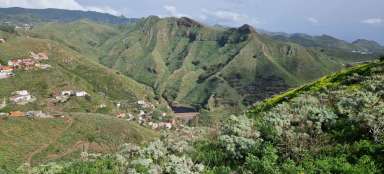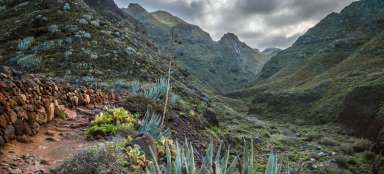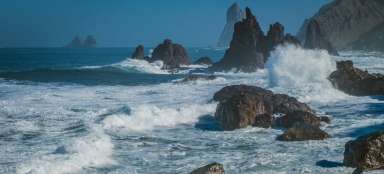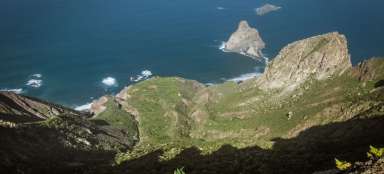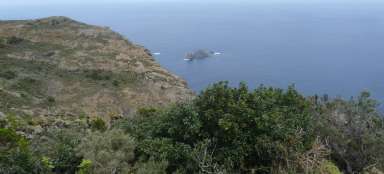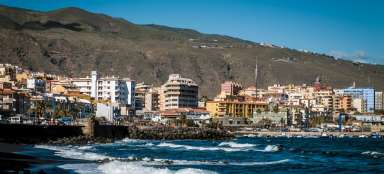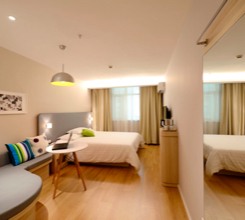A walk around the capital of Tenerife
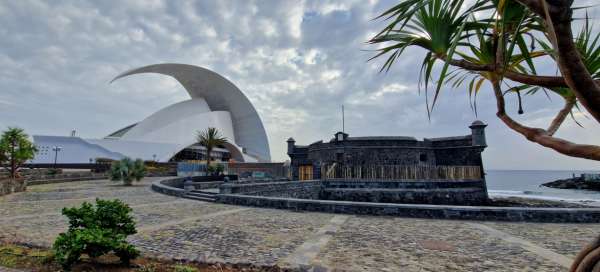
Santa Cruz de Tenerife is the capital of the island of Tenerife, which is one of the Canary Islands and is an autonomous community of Spain. The city is home to the Parliament of the Canary Islands, the seat of government (once every four years it alternates reciprocally with Las Palmas de Gran Canaria) and half of the ministries of the autonomous community. One of the most representative buildings is the auditorium built in the style of modern Spanish architecture. The city hosts one of the world's largest carnivals, the Carnival of Santa Cruz de Tenerife. Santa Cruz is worth a visit and a walk through its intricate streets that have their own charm.
Auditorium "Adán Martín"
The modern building Auditorium „Adán Martín“ standing in the harbor since 2003 is an unmissable landmark. The building was designed by Spanish architect Santiago Calatrava. The task was not only to build a concert hall, but also to create a dynamic, monumental work that would also become a symbol for this area, which I think we succeeded.
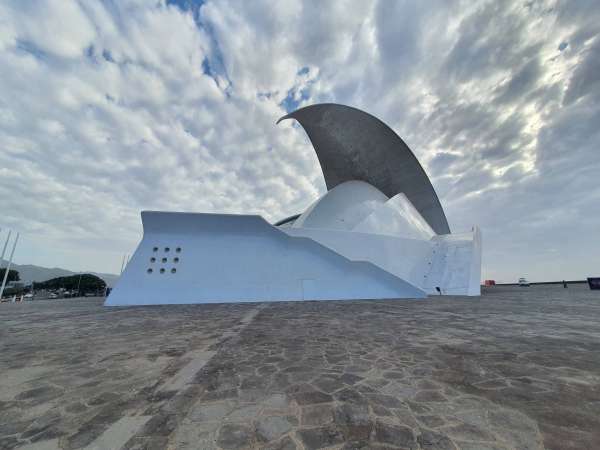
Portraits of celebrities
In front of the Auditorium, you will find supposedly 100 faces of famous personalities of the world painted on the stones that serve to protect against the waves. Here you can meet personalities from the field of science, singers, actors, musicians and politicians.
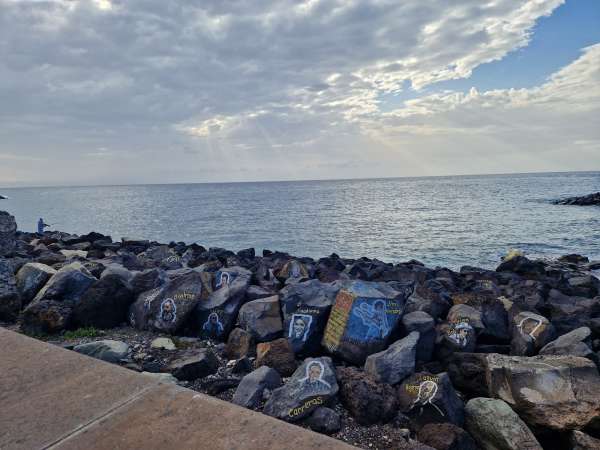
Castillo de San Juan Bautista
Modern styles meet historic buildings in Santa Cruz. And here, right next to the new Auditorium building, you will find the Castle of St. John the Baptist, also called the Black Castle, which has stood here since 1644. It was the second most important fortress in the defense of the city. It served as a military fortress until 1924. In 1948, it was transformed into a military museum.
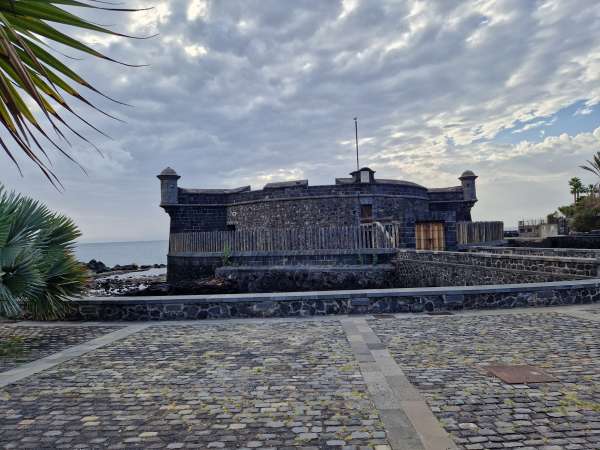
Parque Marítimo César Manrique
A few steps behind the fort is the Parque Marítimo César Manrique, an amusement water complex designed by the architect César Manrique. It is a posthumous work by a famous artist from Lanzarote, which was opened in 1995. It uses natural elements such as volcanic stones, palm trees, decorative flowers and saltwater waterfalls. All this underlined by Manrique's unmistakable wind machines. The entrance fee is a few euros and it is probably the only place directly in Santa Cruz where you can swim in sea water.
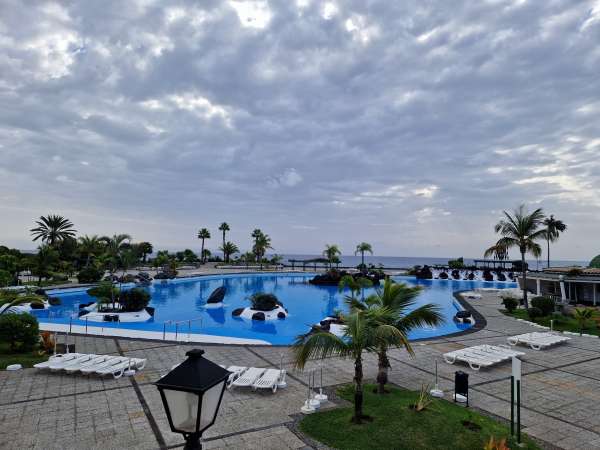
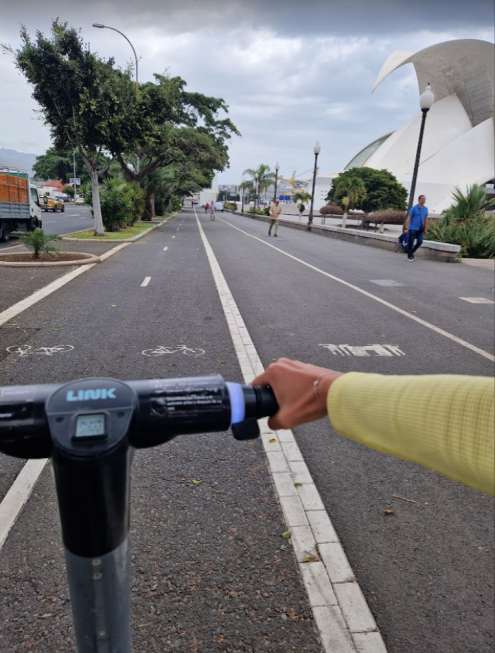
Back to the historic center on a scooter
On the way to the auditorium and other attractions, we walked from the city center along the promenade, which borders the harbor on one side, but on the other side is a road with heavy traffic. The distance from the historic city center is 1.5 km and because we chose the more fun and faster option on scooters to return. There is a designated lane for bikes and scooters on the promenade, so riding is safe and comfortable.
Plaza de España
After about a 10-minute ride, we returned the scooters at the Plaza de España square, from where we continue our tour of the city. Plaza de España is the largest square in the Canary Islands. It was built in 1929 on the site of the historic Castillo de San Cristobal fortress, intended to defend the island against pirates. At present, several walls that have been preserved from the original building can be seen in the tunnel under the square. The main political buildings of the island – the Cabildo de Tenerife and the Palacio de la Carta – are located on this square, and another square, Plaza de la Candelaria, is adjacent to the square. In the center of the square is a large artificial lake and a monument to the victims of the Spanish Civil War – Monumento a los Caídos.
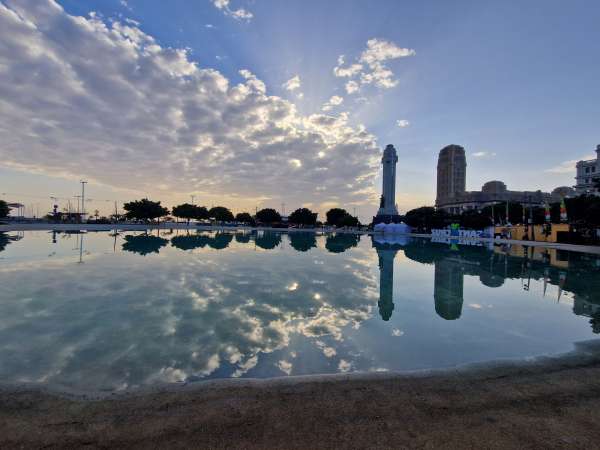
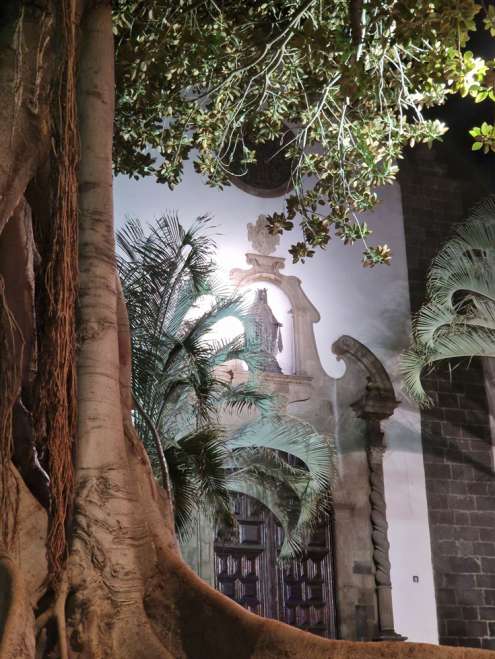
Church of St. Francis of Assisi
Catholic Church of St. Francis of Assisi was originally a Franciscan monastery and now it is the second most important church in the city after the Church of the Conception of the Virgin Mary. The current church was completed in 1680 and stands out for the large number of works of art it owns.
Miraculous painting Señor de Santa Cruz
The church has three naves and is one of the best examples of Baroque architecture in the Canary Islands. The church is famous because it houses the miraculous image of the Señor de las Tribulaciones. It is a small image representing Jesus Christ, who is famous because after the cholera epidemic in 1893, the locals walked with him in a procession through the streets of the city and the epidemic miraculously stopped. For this reason, the image is invoked as the protector of the city and receives the title Señor de Santa Cruz.
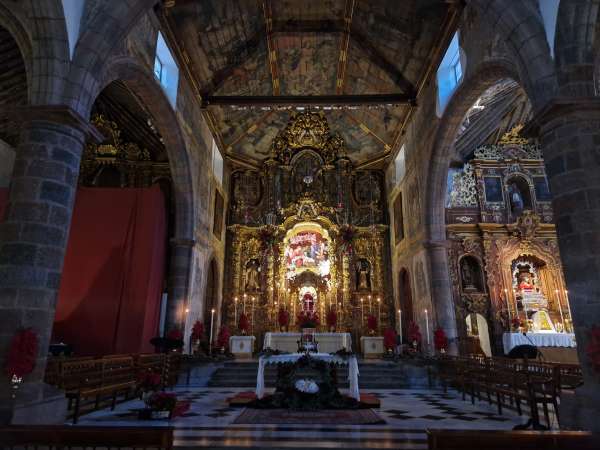
Church of the Immaculate Conception of the Virgin Mary
However, the most important church in the city is the Church of the Immaculate Conception of the Virgin Mary. It is the only five-nave church in the Canary Islands, with basilica architecture. The church was built in the 1500s and is known as the „Cathedral of Santa Cruz“, but it is not actually Tenerife's cathedral. This is the Cathedral of Our Lady of Help in San Cristóbal de La Laguna. The bell tower of the church and the main altar are remarkable. Inside there is also an altar of James the Greater, the patron saint of Santa Cruz de Tenerife, as well as a cross on the basis of which the city was founded in 1494.
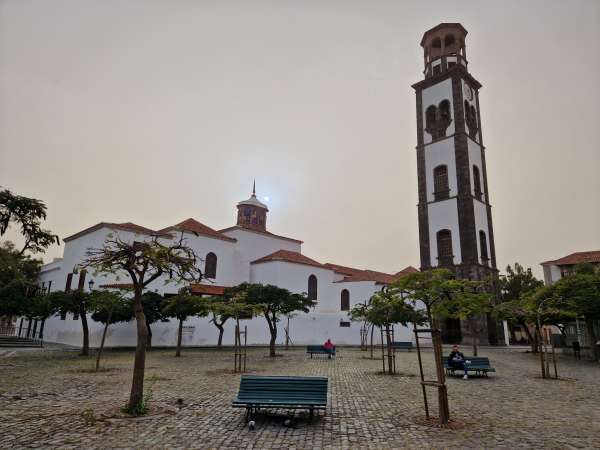
Market Cooperativa Mercado Nuestra Señora De África
Not far from the historic city, it is worth visiting the local market, where you can buy fresh food every day, such as fruit, vegetables, meat, fish or spices. The colonial-style building in which the market has been located since 1943 only adds to the unique atmosphere.
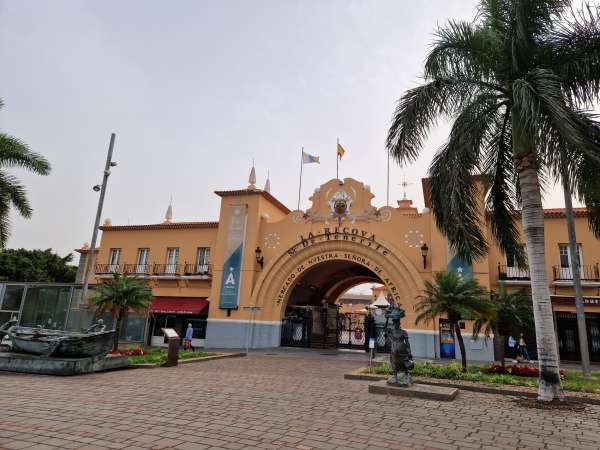
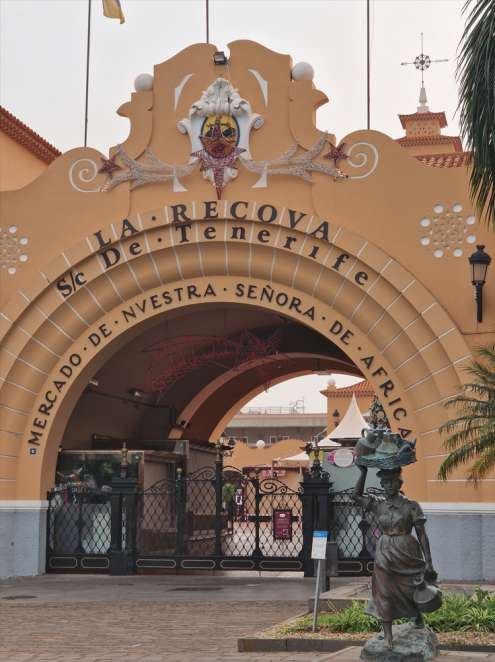
Restoring the past glory of the market
In the 1970s and 1980s, the market languished due to competition from new business concepts that came to the islands. But since 1995, when a cooperative of marketers was founded, there has been a significant revival of activity at the market, which has now become one of the benchmarks of the city. In 2018, it acquired Mercado Ntra. Ms. de África in recognition of his outstanding track Gold Medal of the Government of the Canary Islands and Gold Medal of the City of Santa Cruz de Tenerife.
Playa de Las Teresitas
Las Teresitas beach, with imported golden sand from the Sahara, is an integral part of the city of Santa Cruz. It is the nearest beach with free access to the sea, which is a 10-minute drive from the city center. On the long horseshoe beach, you can find both tourists and locals relaxing here, because Santa Cruz is after all more of a commercial and port city. Here, just outside the city, is the true seaside relaxation.
